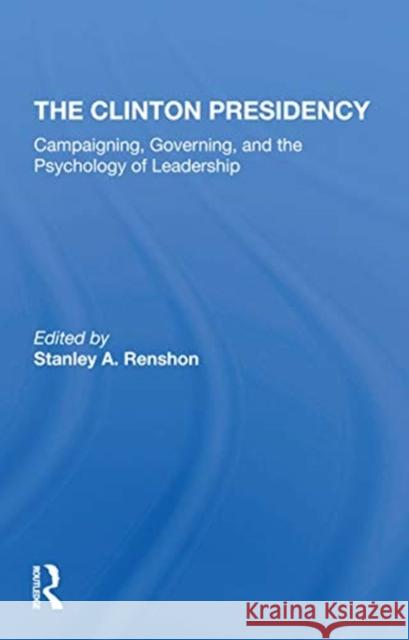The Clinton Presidency: Campaigning, Governing, and the Psychology of Leadership » książka
topmenu
The Clinton Presidency: Campaigning, Governing, and the Psychology of Leadership
ISBN-13: 9780367306366 / Angielski / Miękka / 2020 / 261 str.
The Clinton Presidency: Campaigning, Governing, and the Psychology of Leadership
ISBN-13: 9780367306366 / Angielski / Miękka / 2020 / 261 str.
cena 204,81
(netto: 195,06 VAT: 5%)
Najniższa cena z 30 dni: 201,44
(netto: 195,06 VAT: 5%)
Najniższa cena z 30 dni: 201,44
Termin realizacji zamówienia:
ok. 22 dni roboczych.
ok. 22 dni roboczych.
Darmowa dostawa!
This book explores these questions and develops an initial appraisal of the Clinton presidency.











